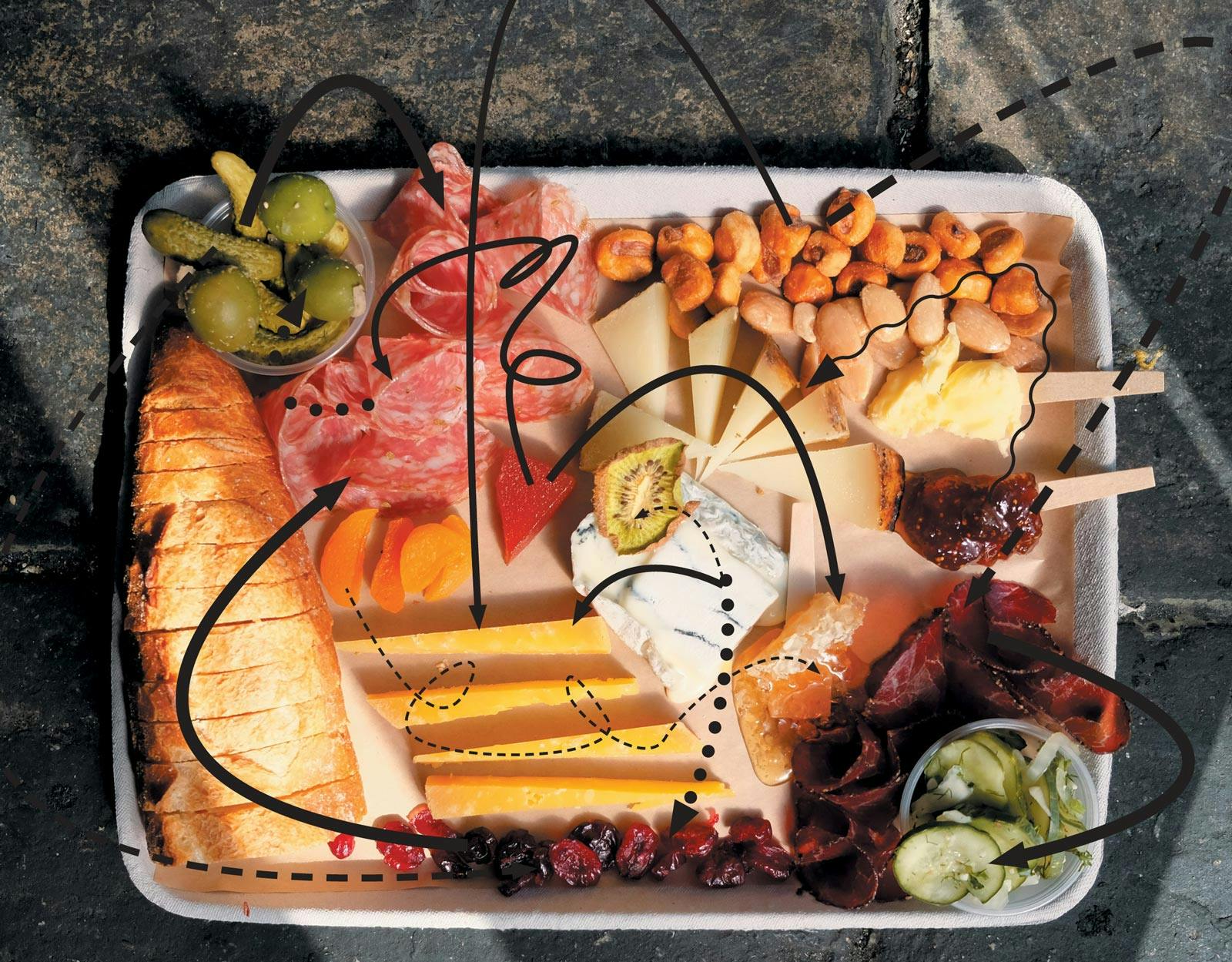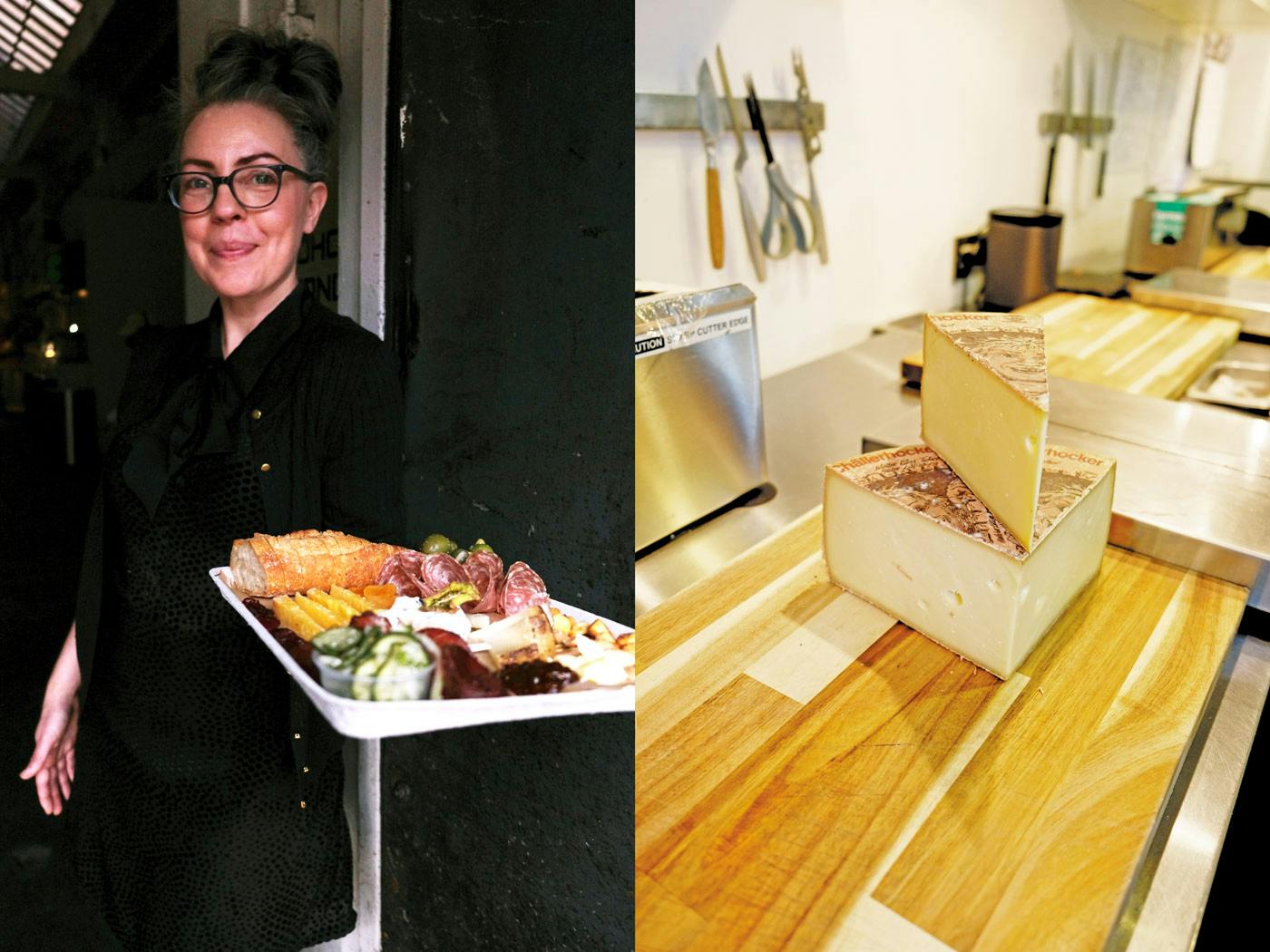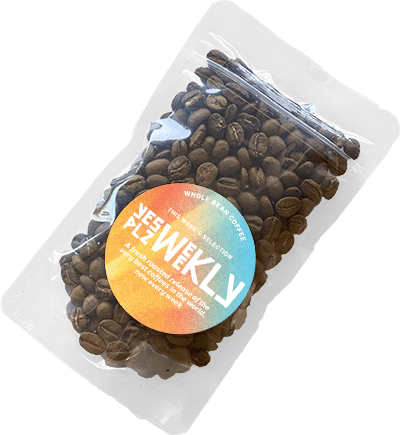SHARE
The Cutting Edge — Lydia Clarke of DTLA Cheese

From triple salchow to triple cream cow’s milk, a pro figure skater sticks her landing as cheesemonger’s monger
|
Culinary
“Cheese is one of those worlds where it chooses you,” Lydia Clarke says as she slices into a McKinley Clothbound Cheddar. “I didn’t choose it. The cheese chose me. The cheese always knows.”
Clarke, along with her sister Marnie Clarke, are the founders of Cheese Cave in Claremont, California, and DTLA Cheese in Los Angeles’ Grand Central Market. “It started as a joke, you know,” Clarke says. “We thought we’d just be two old ladies slinging cheese. What we wanted to do is stand behind a case that we were proud of, sharing a story.” As of June, 2019, they’ve been standing behind that case for 10 years. “It’s a proud moment. We knew people like cheese, but we had no idea that people care how we care.”
For Clarke, cheese wasn’t always her career path. She spent her formative years as a figure skater, first on the ice as a pro, then a coach. “Give me a full face of makeup, some tights, sequined dress, and I’m like, yes,” she says. “It’s a very hard life, being a coach. There are no days off,” Clarke says with a pause. “Not that I have days off now. I really chose that wisely.”
After a decade of coaching, Lydia found herself gravitating toward art school. “I love theory and design,” Clarke says. “Curation, all that it really is, is this story of something.” Like everything else she does in her life, Lydia was all in on her new life in New York, until she lost her father.
Consider Lydia’s father, dairy royalty. Her grandfather was a founder of Monrovia-based Altadena Dairy, and her father its vice president and general manager until it sold in 1989. Beginning in 1945 with 61 cows and a milk wagon, in the early days of car culture, Altadena Dairy pioneered the cash-and-carry dairy drive-thru. “The reason you can buy raw milk in California today is because of our grandfather,” Clarke adds.
After his death, Lydia decided she wanted to be closer to her family and took on a project in Napa Valley. By some cosmic fate, she met her best friends at a time of relative freedom. Together, they established a routine: Tuesdays were for bowling, wine, and oysters. Every year, they would work harvest together.
The cheese had chosen, though. After 10 years, the Clarke sisters realized while on a vacation that between them, they loved eating and talking about cheese enough to quit their jobs and open a store.
“Part of our love of dairy is that cheese just doesn’t happen,” Clarke says. As a child, her family placed value on each step of how something is made. “There are so many wonderful steps before we even see it. It’s knowing how hard a farmer and somebody that takes care of the land works, and all the politics and crazy things that go behind it. A whole wonderful circle of life.”

The first cheeses the sisters stocked at the Claremont shop came from either relationships Marnie had established while working as a cheesemaker, or favorite finds. Today, their emphasis is a conversation about flavor. “[Our importers are] like, ‘We noticed that this wheel of Comte is more hazelnut and this other one is more pistachio. Which did you like?’”
As much as they’re willing to experiment, you’ll never find contraband cheese in there. By its most broad definition, contraband cheese is imported and unpasteurized, and forbidden by the FDA. They’re not against so much as for farmers jumping through all the hoops to do it correctly. “When we first opened, it was like, we’ll have this back thing with all the contraband,” Clarke says. “Now it’s like no, we’ll eat those cheeses while we’re on vacation.”
You won’t find vegan cheese in their case today, either. “For us, it doesn’t make sense when we carry such a tiny selection. I love the story of the cheesemaker, the animal, and the land. For me, that’s what cheese is.”
You can feel Lydia’s love for cheese in the way she talks about it. Picking up a cheese from the Pyrénées, she takes in a deep breath of its rind, and points out notes of “fishy” and “almost ammonia.” She’s quick to clarify that neither of these descriptions is negative, even if their connotations are.
Moving through the three-cheese plate she has assembled, she cuts into a Capriole goat cheese and her eyes light up. It’s a creamy white with blue streaks, and the texture of what a fluffy spring cloud looks like. “I know how it’s made, but still, how is it this magical?” she says.
Lydia treats the story of this cheese as if it were her own. It arrives from a farm that used to raise its own goats, and even though it lost the title of farmstead after the goats moved next door, the cheese quality has never wavered. “Sometimes we put things in a category or on a label, and it doesn’t tell the whole story. It’s the whole conversation. When you’re a cheesemonger you’re a goon on an extra-deep level,” Clarke says. “You care about milk so much.”
Behind the counter at DTLA Cheese, Lydia acts as a cheese matchmaker of sorts. “Even a small case can be intimidating,” Clarke says. She also uses cheese plates as a canvas to encourage experimentation and adventurous choices. For most, she places a cheese from each popular dairy animal: cow, goat, and sheep. “Nowadays, there’s always someone who says, ‘I’m not eating cow’s milk right now, or I only eat this and that,’” Clarke says. Around the cheeses, she sets fatty nuts to lend salt; sweet and tart fruit and jam; honeycomb; breads; and, of course, butter. She points out her personal stash of Le Beurre Bordier, also known as billion-dollar butter. “Maybe if I ate less butter, I would have a little bit more money,” Clarke jokes. “But is that really worth it?”
On a loose sheet of paper, she neatly pens a list of what’s on the plate, but purposefully doesn’t provide a roadmap to navigate the accoutrement and cheese combinations. She wants people to experiment with something like a dried kiwi with goat cheese, or eat membrillo and then a pickle. “If there’s something that you didn’t like together, go eat a Marcona almond and then restart. I think we’re so used to ‘This is how you have to do something.’ Geez, there are no rules. I’m not the boss of your palate. Discover, explore, eat.”
Try a cup on us
Order A Sample

SHARE
